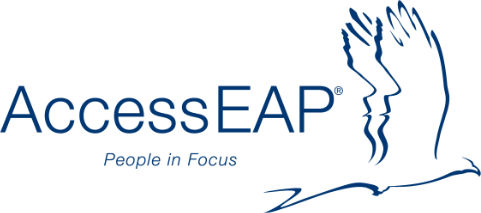
Exploring Positive Psychology - a message from Sally Kirkright, CEO AccessEAP
Throughout this year, we have been bombarded with messages from the media and on social media relating to the pandemic. One common message that stood out was to "be grateful for what you have during these times". It can be incredibly difficult to do this when COVID-19 has taken so much in terms of removing us from a physical workplace, travel and family dinners. To explore this perspective, our clinicians here at AccessEAP have turned to the research of Positive Psychology. This has assisted us to discuss situations from a strengths-based lens. The approach, which has been around for decades but is starting to gain momentum, doesn't focus on the sickness or ill health of the individual but rather on their wellbeing. This allows for a shift in perspective.
Positive psychology shifts the focus from anger, depression, fear and jealousy to look at what makes us well: motivation, forgiveness, resilience and compassion. Here is a telling quote from George Valliant, one of the founders of the positive psychology movement, where he describes The Comprehensive Textbook of Psychiatry.1 It has '500,000 lines of text [with] thousands of lines on anxiety and depression, and hundreds of lines on terror, shame, guilt, anger, and fear. But there are only five lines on hope, one line on joy, and not a single line on compassion, forgiveness, or love." In a pandemic where humanity is still prevailing, despite the whole world being encouraged to stay indoors, looking for and finding hope is even more important.
October is Mental Health Awareness Month. This means that for one month mental health is in focus in the media and the recent budget increase in Medicare support for additional sessions and resources into community mental health, highlights the increase in demand for support which has increased due to the pandemic. Over the last ten years of leading the AccessEAP team, I can see a positive change in many community leaders, customer organisations and most recently the federal budget, recognising that mental health is important to the future of our country. It is, according to the World Health Organisation "a state of complete physical, mental and social wellbeing and not merely the absence of disease or infirmity."2 An important implication of this definition is that mental health is more than just the absence of mental disorders or disabilities.
The question for many individuals, organisations and the general community is how is mental health maintained? One of the most concise models of positive psychology was developed by Martin Seligman called PERMA3. The backbone of this theory is that individuals (and organisations, groups and even families) understand, develop and work/live within their signature strengths. PERMA stands for Positive emotions, Engagement, Relationships, Meaning and Accomplishments. PERMA allows for the individual to take their own steps and manage their own wellbeing and can be measured to show growth and success.
Feedback from managers, leaders and even friends and family have asked what role can I play in supporting people around me? On the back of R U OK? Day and now in Mental Health Awareness Month, the answer is about knowledge and empowering oneself to have conversations which are caring and supportive.
We can all play a role in reaching out and having meaningful conversations. We can through talking break down stigma and encouraging people to get help. We know community mental health services are under pressure due to increased demand. This highlights the importance of an EAP within organisations, to provide support to employees and their families. Managers who are in the "frontline" for their people are often ignoring their own mental health. It is timely for themselves and to talk and remind others about mental wellbeing, strengths, stigma and getting support.
Overall, focusing on what we can control, what we can do well, we can see the practical and emotional benefits of building what is strong in our communities and personal lives, rather than only looking at what is wrong. On a national level, this is an example of the tenets of positive psychology – the nation looking at what we are doing well together and building on our strengths. After doing all of the hard work that 2020 has created, 2021 may mean a more aware and mentally healthy world. I can't wait.
Sally Kirkright, CEO AccessEAP
References
- [1] https://harvardmagazine.org/2007/01/the-science-of-happiness.html
- [2] https://www.who.int/about/who-we-are/constitution
- [3] https://ppc.sas.upenn.edu/learn-more/perma-theory-well-being-and-perma-workshops
- Sunset Photo by Ferdinand Stöhr on Unsplash



